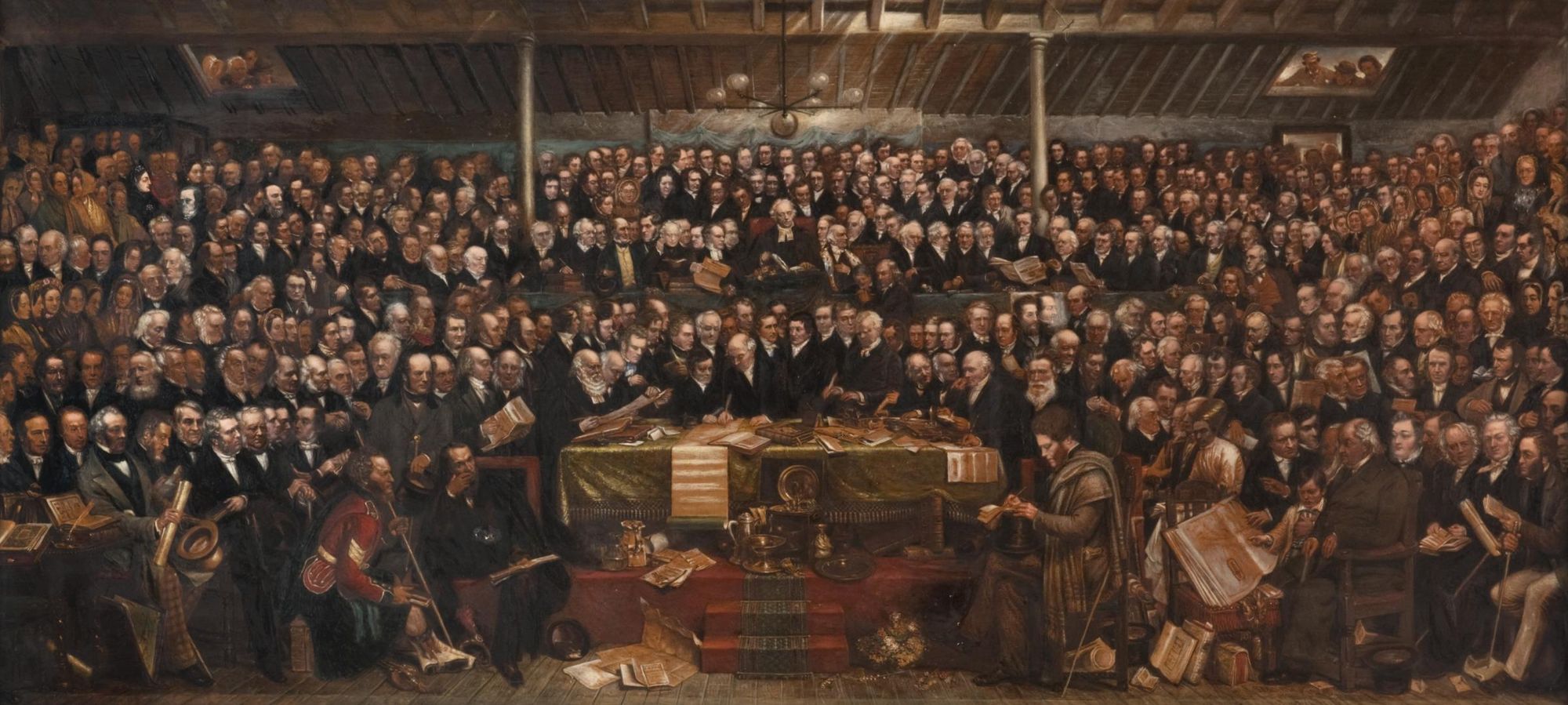Author: Thomas Brown
Publisher: Book on Demand Ltd
902 pages
Purchase from: Amazon
(£34.95)
The book that has had the most profound impact on my life is a relatively obscure work about Scottish church history, The Annals of the Disruption by Thomas Brown, first published in 1884.
I was given this book by my grandfather when I was a student at Edinburgh University studying history. Little did he know that it was to end up in my being called into the Free Church ministry, or, staunch Plymouth Brethren as he was, he may have had second thoughts about giving it to me. How could a book written about an ecclesiastical event 150 years ago have an impact on someone who was struggling to come to terms with modern history and politics?
The Annals of the Disruption is a book that demonstrates how great God is and what he can do through his people. It is a book which inspires vision and leads us to cry to the Lord to do the same things again. It is the story of how teachers, missionaries and ministers gave up their guaranteed income and houses in order to obey their Lord; how congregations gave up their buildings and their long-standing attachments to the national church in order to follow Christ; how the Lord blessed them and brought blessing to different parts of the world through their sacrifice. The Disruption of the Church of Scotland was the greatest event of nineteenth-century Scottish history, yet our secular historians have largely ignored it or attempted to regard it primarily as a sociological political movement. The Annals of the Disruption clearly demonstrates that God’s Spirit was at work and sets out the results of that work. What lessons did it teach me?
Firstly, that when God is at work in a community there will be a real hunger and thirst after his Word. Who can read of the enormous open-air meetings in the Highlands without being moved?
Secondly, it taught me that the Christian gospel has a profound impact on the social and political well being of a nation. It was great to discover that when people follow the teaching of the Bible their nation is blessed. An example recorded in the annals concerns what has come to be known as the great potato famine. In 1849 over one million Irish people were starved when the nation’s potato crop failed – at the same time hundreds of thousands of people were in the same predicament in the West Highlands of Scotland. The Free Church appealed to the Government for help but at the same time bought grain from Russia and so averted a tragedy similar to that in Ireland. This practical support was given at a time when schools, colleges, churches and manses were being built and provisions were being made for ministers’ salaries. A church which is biblical will preach the gospel, help the poor and be involved in education.
Finally, I learnt that it was possible to belong to a denomination which was not theologically mixed. That lesson led me into the present-day Free Church which, although it has many faults, still retains the teaching and the principles of its forebears. As a minister of that church in a congregation which knew the blessing of God at the time of the Disruption (St Peters in Dundee – the church of Robert Murray M’Cheyne), I am thankful for the heritage of the past recorded in The Annals of the Disruption. It gives me hope for the present and the future. Even if you have no connection with the Free Church, or no particular interest in history, hunt this book out. I am sure you will find that your soul is blessed and your vision restored!








